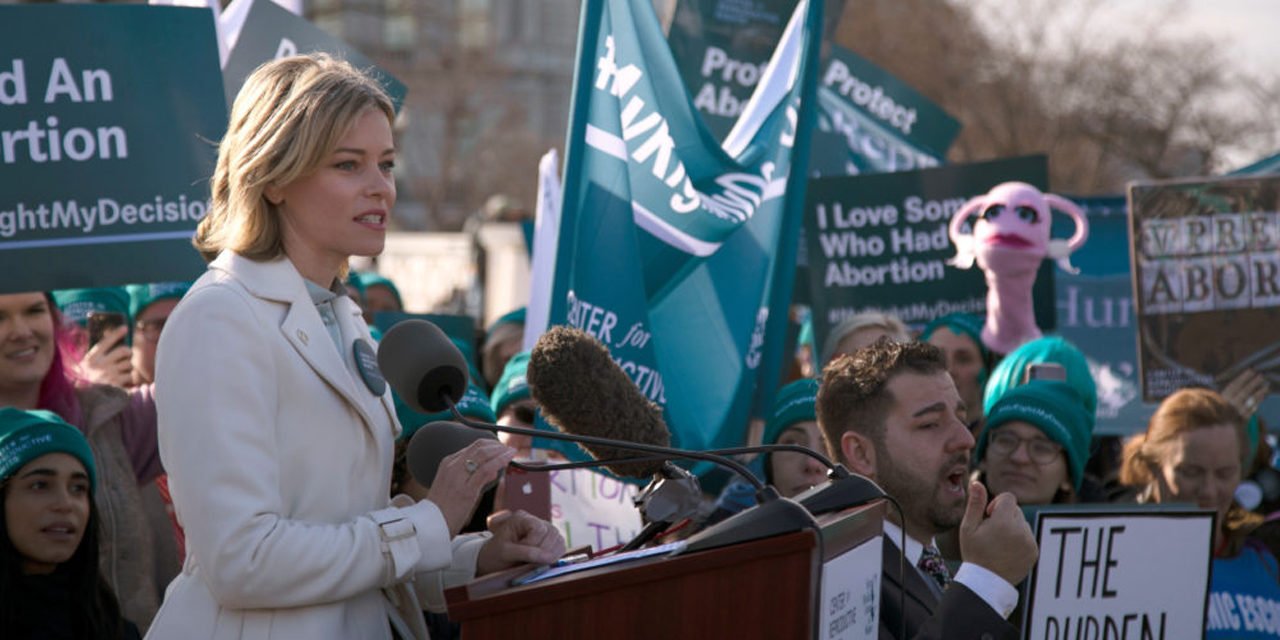This week, pro-abortion activists gathered outside the U.S. Supreme Court (SCOTUS) to rally in solidarity with Louisiana’s abortion clinics. The law, which now is being reviewed by SCOTUS, requires abortionists to have admitting privileges at local hospitals. Of course, the radical abortion activists are against such basic medical protections.
Elizabeth Banks, an actress, producer and director, whose latest credit was the abysmally received 2019 Charlie’s Angels remake, told the crowd gathered in front of the court that, “Abortion care cannot be just a privilege reserved for those in the right state, the right economic class, it must be a right.”
Though there is a legal guarantee that women can have an abortion, doesn’t that also mean that it should be safe? Does this Hollywood star know that untrained and unqualified nonmedical staff members basically run Planned Parenthoods across this country and administer much of the “health services” when it comes to abortion?
Likely, the answer is no, and nor does she probably care. Anything to protect abortion, right?
Busy Philipps, an actress and short-lived television host who was also at the rally, said, “I will never stop talking about my abortion, or my periods, or my experiences in childbirth, my episiotomies, my yeast infections, or my ovulation that lines up with the moon.”
It could be me, but I don’t think anyone beyond her close group of friends cares that much about her reproductive experiences or her connection to the moon. The issue of hospital admitting privileges is about protecting the health and welfare of women across the country, which is a commonsense practice that everyone should support.
Abortionists should have admitting privileges at local hospitals, as a sign of their medical expertise and competence. Admitting privileges allow a physician that doesn’t work at the hospital to treat their patient at the facility. If a physician cannot get admitting privileges at any hospital, despite requesting them, that should be deeply concerning to any patient seeking care. To a certain extent, it means that other health professionals question the training or practices of the abortionist, and the hospital doesn’t want to take the legal risk of having them treat a patient.
Abortion clinics work in this sliver of medical society with little oversight or regulation. As former Planned Parenthood employee Abby Johnson reported to The Daily Citizen in an interview, this allows abortion businesses to operate using medically untrained staff members to do things like give shots or even give patients an intravenous drip with sedation, something that would get any other medical facility shut down.
This is what happened in the abortion clinic of Kermit Gosnell, a butcher of women and babies who was known around Philadelphia’s medical community for his abysmal medical practices but was allowed to continue injuring women and killing babies because the city was more interested in protecting abortion than helping women. His medical staff members were entirely untrained, with one teenage employee using a hand drawn chart to administer sedation. A patient died as a result.
The Gosnell case is extreme, but Johnson reports to The Daily Citizen that Planned Parenthood’s nonmedical staff were given enormous leeway to administer some treatments to patients without medical supervision. According to a report from Louisiana’s Attorney General, a radiologist and an ophthalmologist were both hired to complete abortions at the clinic. Neither had the necessary qualifications to perform the procedures properly.
That’s why it’s critical that laws require abortionists to have admitting privileges. The practice demands a certain amount of transparency by requiring clinic administrators to hire competent doctors and other medical staff members. Otherwise, unless something horrific happens, these clinics operate on the fringes of medical science and ethics.
Louisiana’s law is not there to prevent women from having an abortion, but to make sure that they’re treated by a proper medical professional and that the physician has the ability to continue treating the patient at the hospital if needed. If being concerned about the health and welfare of women is wrong, then I don’t want to be right.






